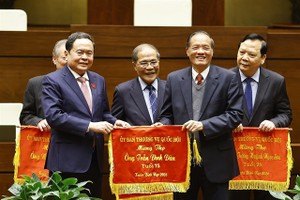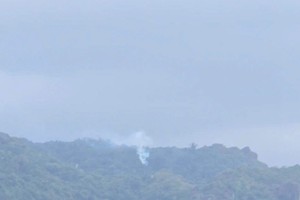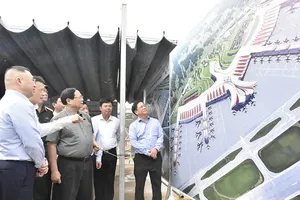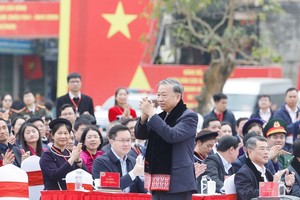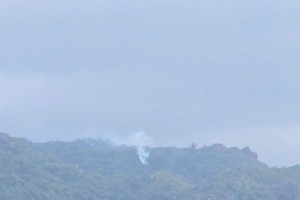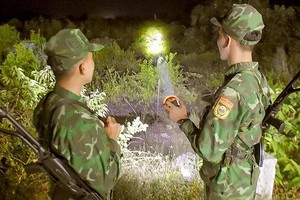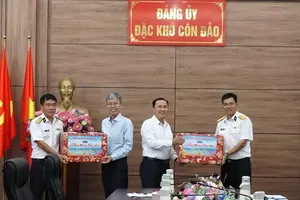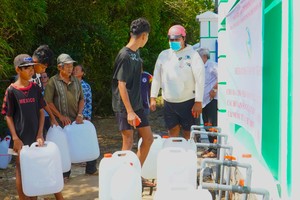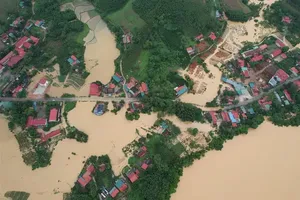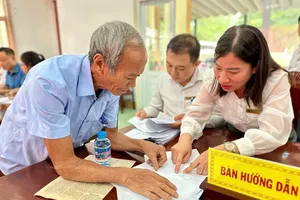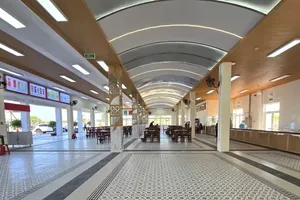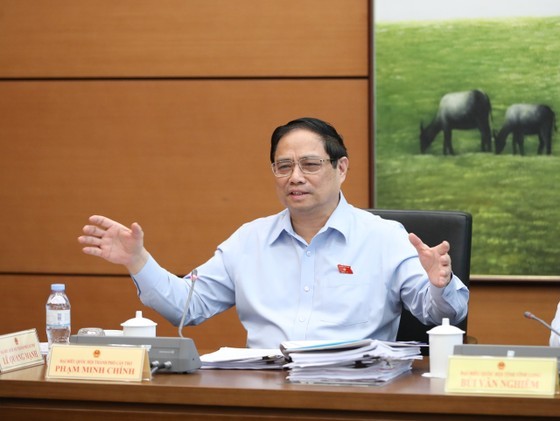 |
Vietnamese Prime Minister Pham Minh Chinh speaks at a group discussion on socio-economic affairs within the framework of the sixth session of the 15th-tenure National Assembly on October 24 morning. (Photo: Quang Phuc) |
The information was stated by Vietnamese Prime Minister Pham Minh Chinh within the framework of the sixth session of the 15th-tenure National Assembly.
At a group discussion on socio-economic affairs on October 24 morning, Prime Minister Pham Minh Chinh spent a lot of time sharing the concerns of many generations of leaders about the Mekong Delta region.
As for the proposal and recommendations of a National Assembly deputy from the Mekong Delta province of Vinh Long for supporting the Mekong Delta region to repel negative impacts from increasingly unpredictable drought, saline intrusion and land subsidence, the Vietnamese Prime Minister said that the Government spent thousands of billions of dong from the central reserve budget for landslide prevention and control projects in the Mekong Delta.
The capital source is to tackle urgent problems; however, for the long term, it is essential to have large fundamental projects of landslides and subsidence prevention and control worth billions of US dollars, added the PM.
Besides, the PM emphasized that measures against landslides, subsidence and saltwater intrusion have been identified as key priorities. Apart from coping with extreme climate change, Vietnam must join hands with the international community in limiting global warming and bringing net emissions to zero by 2050.
Vietnam located in the downstream area is the most affected country in the region due to flow changes in the Mekong River.
Amid the changes, Vietnam has proposed countries to control the hydroelectric dam construction projects in the Mekong and Lancang river basins since 1990. Countries have shown their responsibilities but it is necessary to make more cooperative efforts to solve the problem, added the Prime Minister.
Prime Minister Pham Minh Chinh said that during his recent working trip to Saudi Arabia, he met the President of the Philippines and the President of Indonesia to discuss cooperation in rice export in the orientation of “Green production, Green consumption”. Therefore, it is important to plan and have large-scale projects to materialize it.
The Vietnamese Prime Minister once again confirmed that in order to repel the landslides and subsidence in the Mekong Delta region, it is necessary to have large-scale projects for a long time, boost international cooperation and mobilize resources.
The projects need to prioritize solving four core issues, comprising landslide, subsidence, saltwater intrusion and drought. Additionally, the Mekong Delta region needs to pay heed to two top priorities including human resource training and transport infrastructure.
Procedures for getting loans to implement the projects should be simplified and transparent to prevent prolongation and resource waste.
Apart from the ultimate exploitation of water-way advantages, the transport sector needs to focus on building expressways in the Mekong Delta, and upgrading transport infrastructure such as Ca Mau Airport.
The Prime Minister also pointed out many difficulties and challenges in the development of road and aviation routes in the Mekong Delta. With the desire to change the faces of localities in the region, it is essential to have high determination and make great efforts.








